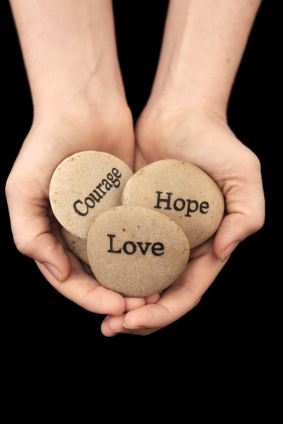 Liz Snell felt like she couldn’t lift her head from the couch. She’d lie there all day crying. For 13 years, she’d been “soldiering on” as a Marine’s wife through moves, deployments and all the other complications of military life. But in 2013, she reached a new low.
Liz Snell felt like she couldn’t lift her head from the couch. She’d lie there all day crying. For 13 years, she’d been “soldiering on” as a Marine’s wife through moves, deployments and all the other complications of military life. But in 2013, she reached a new low.
“Any time I closed my eyes, I kept having these suicidal thoughts,” she said. “I actually checked myself into the psych hospital last year when I was having those suicidal ideations. I knew that just wasn’t right.”
That first night in the hospital, she called her husband to apologize for being so weak. But he countered that she was the strongest person he knows because she sought help.
“There’s a sort of stigma where we’re supposed to be the strong rock of the family, the one whose shoulders are so wide that everything’s right on them,” Snell said. “I think to seek help, most people think that means you’re weak and you’re not the strong rock you portray yourself to be.”
So Snell has laid the foundation to support other women like herself. She founded Military Spouses of Strength, an online community that serves as a clearing house of resources and services available for service members’ families who are in need of emotional and psychological support. Through Facebook and Snell’s blog, Snell is working to reduce the fears and misperceptions so many military spouses have about seeking help.
“I think that the more we talk about it, the more we’re raising the awareness that if you are having these thoughts, it’s not something that’s abnormal,” she said. “It’s part of something we all go through. We all have moments when we have depressive episodes.”
Snell’s battle with depression taught her not only what’s available for military spouses in the community at large, but also lessons about her marriage.
“I thought I could carry everything on my shoulders and not have to rely on my partner in life because I didn’t want to add more stress to him,” she said. “But I’m learning he is my partner, and I did choose him as my partner for a reason.”
She’s also realized a critical point about herself.
“It’s OK to make mistakes,” Snell said. “I am human. I am not a superhero.”
Depression is often a gradual, downhill, emotional slide, particularly for people whose depression stems from external stress rather than chemical imbalance, Snell said. Signs of depression include losing interest in things or activities you previously enjoyed, feeling like you can’t get out of bed, lack of appetite or overeating, insomnia, irritability and feelings of hopelessness. Some people suffer physical symptoms – headaches, body pain, cramps, digestive problems – that don’t respond to conventional treatment.
There are resources for military families such as Give an Hour and Military OneSource. You can also see a Tricare provider for up to eight visits without an insurance referral. As for the common fear that word of a family member’s issue will make its way back to the command, that may only happen in the case of a potential suicide or homicide, Snell said.
But Snell is in favor of tracking suicides of family members, which the Department of Defense is considering.
“Obviously it’s something that’s very much needed,” Snell said. “Because without tracking, how do we make sure adequate programming is in place?”
In the mean time, Snell and members of her online community will continue to raise those questions and offer guidance to fellow spouses who want help.
“I think the more often we talk about it, the less there is a stigma,” she said. That’s actually part of the mission of Military Spouses of Strength, to tear down the walls of stigma.”




